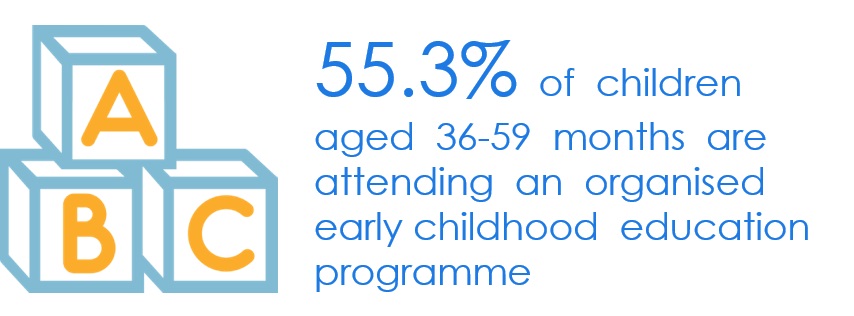Readiness of children for school is a combination of certain knowledge and skills that the child should have to adapt quickly to the school environment and the educational process in all its manifestations. Readiness of children for primary school can be improved through attendance to quality pre-school and early childhood education programmes.
In Kazakhstan, pre-school organizations vary by the following types:

nursery
kindergarten
family nursery
sanatorium nursery
school-kindergarten combination facility
pre-school mini-center
More than half (55.3 percent) of children aged 3-4 years are attending an organised early childhood education programme.
Urban-rural and regional differentials are notable – facilities with such programmes are attended by 62.2 percent of children from urban areas compared to 48.9 percent from rural areas.
It is well recognized that a period of rapid brain development occurs in the first 3-4 years of life, and the quality of home care is a major determinant of the child’s development during this period. In this context, engagement of adults in activities with children, presence of books in the home for the child, and the conditions of care are important indicators of quality of home care.
For more than 85 percent of children aged 36-59 months an adult household member engaged in four (or more) activities that promote learning and school readiness in 3 days preceding the survey.
The Early Child Development Index (ECDI) is calculated as the percentage of children who are developmentally on track in at least three of four domains: learning, physical, socio-emotional development, and literacy and numeracy skills. The Early Child Development Index (ECDI) for children aged 36-59 months is 85.5 percent. Analysis of the four domains of child development shows that 98.3 percent of children develop in accordance with the age in the domain of physical development, 97.2 percent – in learning, and 82.1 percent – in social-emotional development.